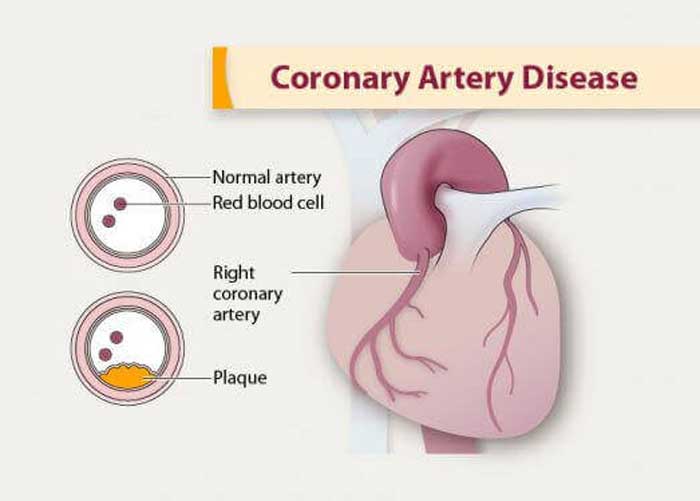Treatments for Coronary Artery Disease In Hyderabad
#Best Heart Specialist in Hyderabad
Coronary Artery Disease, also known as Coronary Heart Disease, is one of the most common heart conditions that is caused by cholesterol deposits in the heart arteries & inflammation. In this condition, the coronary arteries (major blood vessels that supply oxygen rich blood to the heart muscle) struggle to send sufficient oxygen, nutrients & blood to the heart muscle.
The worst part about this condition is that the symptoms often go unnoticed until a significant blockage causes problems or the patient experiences a heart attack. The best way to prevent this condition is to adopt a heart healthy lifestyle.
Dr Sudheer Koganti is the best cardiologist in Hyderabad & offers the best treatment for Coronary Artery Disease.

What is Atherosclerosis?
Atherosclerosis refers to the buildup of plaque (which consists of cholesterol, calcium, waste products, fatty substances & fibrin) inside the arteries. Atherosclerosis is the main cause of coronary artery disease.
As plaque build up increases in the artery walls, the arteries begin to narrow or stiffen leading to clogging or damage in the arteries. This stops the blood flow to the heart muscle leading to ischemia, angina & even increases your risk of heart attack.
Who is likely to develop Coronary Artery Disease?
The chances of an individual developing this condition is high if he or she:
Has high Cholesterol
Has high blood pressure
Has family history of heart disease
Is Diabetic
Is a Smoker
Is obese
Leads a sedentary lifestyle
What are the signs of a Coronary Artery Disease?
Plaque buildup takes years, in some cases even decades. Hence, it is very rare for symptoms to show up in the initial stages. As arteries narrow, the patient may experience mild symptoms that indicate your heart is working extra hard to deliver oxygen rich blood to your body.
The most common signs include:
Pain in the chest
Shortness of breath , after mild physical activity like climbing stairs
In some cases, coronary artery disease is not identified until the patient has a heart attack. Common Symptoms of heart attack include:
Angina: Discomfort in chest often experienced as heaviness, numbness, pressure or aching in the chest.
Persistently feeling tired
Dizziness
Nausea
Weakness
In women, symptoms may include:
Discomfort or pain in shoulder, neck, abdomen or back
Indigestion or heartburn
Unexplained anxiety
Cold sweat
How is Coronary Artery Disease diagnosed?
When a patient presents with the above mentioned risk factors, the cardiologist in likely to recommend the following tests to diagnosed Coronary Artery Disease:
Electrocardiogram: This involves recording electrical activity in the heart. It is an effective test to diagnose a heart attack, heart rhythm issues & ischemia.
Echocardiogram: This involves use of sound waves to assess the structures and overall functioning of the heart.
Exercise Stress Test: This is a treadmill test that helps diagnose engine & coronary blockages.
Cardiac Catherization: This involves insertion of small tubes into the blood vessel to check the heart function.
Coronary Angiogram: This involves use of CR & contrast dye to see 3d images of the moving heart & detect blockages in the coronary arteries.
Coronary Artery Calcium Scan: This involves measuring the calcium in the walls of the coronary arteries which may be an indication of atherosclerosis.
What are the complications of coronary artery disease?
Angina
Heart attack
Heart Rhythm Problems
Heart Failure
Cardiogenic Shock
Sudden Cardiac Arrest
How is Coronary Artery Disease treated?
The first line of treatment for Coronary Artery Disease involves making significant lifestyle changes which may include:
Quit Smoking
Eat heart healthy foods
Reduce alcohol consumption
Increase Physical Activity Levels to at least 30 minutes per day
Manage other health issues like high cholesterol, high blood pressure & diabetes
Further, your cardiologist may also recommend the following type of medications
Medications to lower cholesterol levels
Medications to lower blood pressure
Medications to stop angina
Medications to reduce the risk of blood clots


